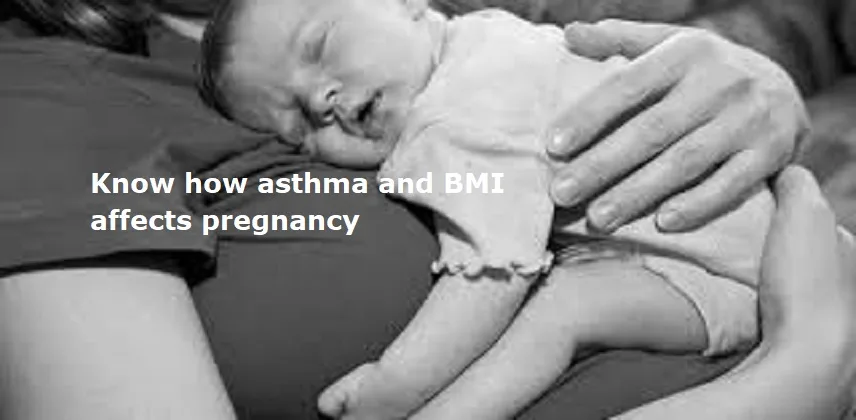
Several factors affecting the overall health of both the mother and the developing foetus. asthma and BMI (Body Mass Index) are main factors affecting pregnancy. Both conditions are manageable with the right care, if left untreated or improperly managed, they can contribute to complications that increase the risk of miscarriage.
Asthma, a chronic inflammatory disease of the airways, can limit the body’s ability to oxygenate the foetus effectively, while an unhealthy BMI can negatively impact hormonal balance and pregnancy health. Pregnancy can sometimes exacerbate asthma symptoms due to the changes in hormone levels and lung function. If asthma is not well-controlled, it can lead to reduced oxygen supply for the foetus, which is critical for proper growth and development.
How asthma affects pregnancy
a. Reduced oxygen supply
During an asthma attack, the airways constrict, making it harder to breathe and decreasing the amount of oxygen entering the bloodstream. Lack of oxygen can lead to developmental issues or pregnancy loss.
b. Inflammation
Asthma is characterised by chronic inflammation in the airways, which can cause stress to the mother’s body. Persistent inflammation and frequent asthma attacks can lead to heightened stress hormones, which have been linked to increased risks of miscarriage.
c. Medications
Uncontrolled asthma poses a higher risk than properly managed asthma. Untreated asthma increases the chances of complications, including miscarriage.
Prevention tips for managing asthma during pregnancy
a. Regular check-ups
Consult with healthcare providers regularly to monitor asthma symptoms and adjust medications as needed.
b. Avoid triggers
Identify and avoid asthma triggers such as dust, smoke, and strong odours. Pregnant women should be especially mindful of allergens that could induce asthma attacks.
c. Medication management
Ensure that asthma medications are pregnancy-safe, but don’t stop using them without medical advice. Well-controlled asthma is safer than untreated asthma.
BMI is a measure of body fat based on height and weight, and it plays an important role in pregnancy health. A BMI that is either too high (overweight/obesity) or too low (underweight) can impact fertility, hormonal balance, and the ability to maintain a healthy pregnancy.
How high BMI affects pregnancy
a. Hormonal imbalances
Excess body fat can cause hormonal fluctuations that interfere with ovulation and implantation, making it harder to maintain a healthy pregnancy.
b. Inflammation and insulin resistance
Obesity is associated with chronic inflammation and insulin resistance, both of which can increase the risk of miscarriage. High blood sugar levels, often seen in overweight women, can lead to complications in early pregnancy.
c. Increased risk of pregnancy complications
Women with a high BMI are at greater risk for conditions such as preeclampsia and gestational diabetes, which can lead to miscarriage or premature delivery.
Also Read: Regular sex will help brain development, says study
How low BMI affects pregnancy
a. Nutritional deficiencies
Women with a low BMI may not have adequate fat stores to support a healthy pregnancy. Insufficient nutrients can lead to developmental issues in the foetus, increasing the risk of miscarriage.
b. Hormonal disruptions
Low body fat can cause irregular menstrual cycles and insufficient production of pregnancy-maintaining hormones like progesterone. Low levels of progesterone can result in an inability to sustain the pregnancy.
c. Increased stress on the body
Being underweight can put stress on the body, making it harder to cope with the physical demands of pregnancy, potentially leading to miscarriage in the early stages.
Prevention tips for managing BMI during pregnancy
a. Achieve a healthy weight before conception
Women planning to get pregnant should aim for a healthy BMI, as this can significantly reduce the risk of miscarriage. A healthcare provider can offer guidance on achieving a balanced weight.
b. Balanced nutrition
Focus on a diet rich in fruits, vegetables, whole grains, and lean proteins to maintain a healthy weight during pregnancy. Avoid crash diets or excessive calorie restriction, which can deprive both the mother and foetus of essential nutrients.
c. Moderate physical activity
Engage in regular, moderate physical activity like walking or prenatal yoga to support a healthy pregnancy. Exercise can help manage weight, reduce stress, and improve overall well-being.

Post Your Comments